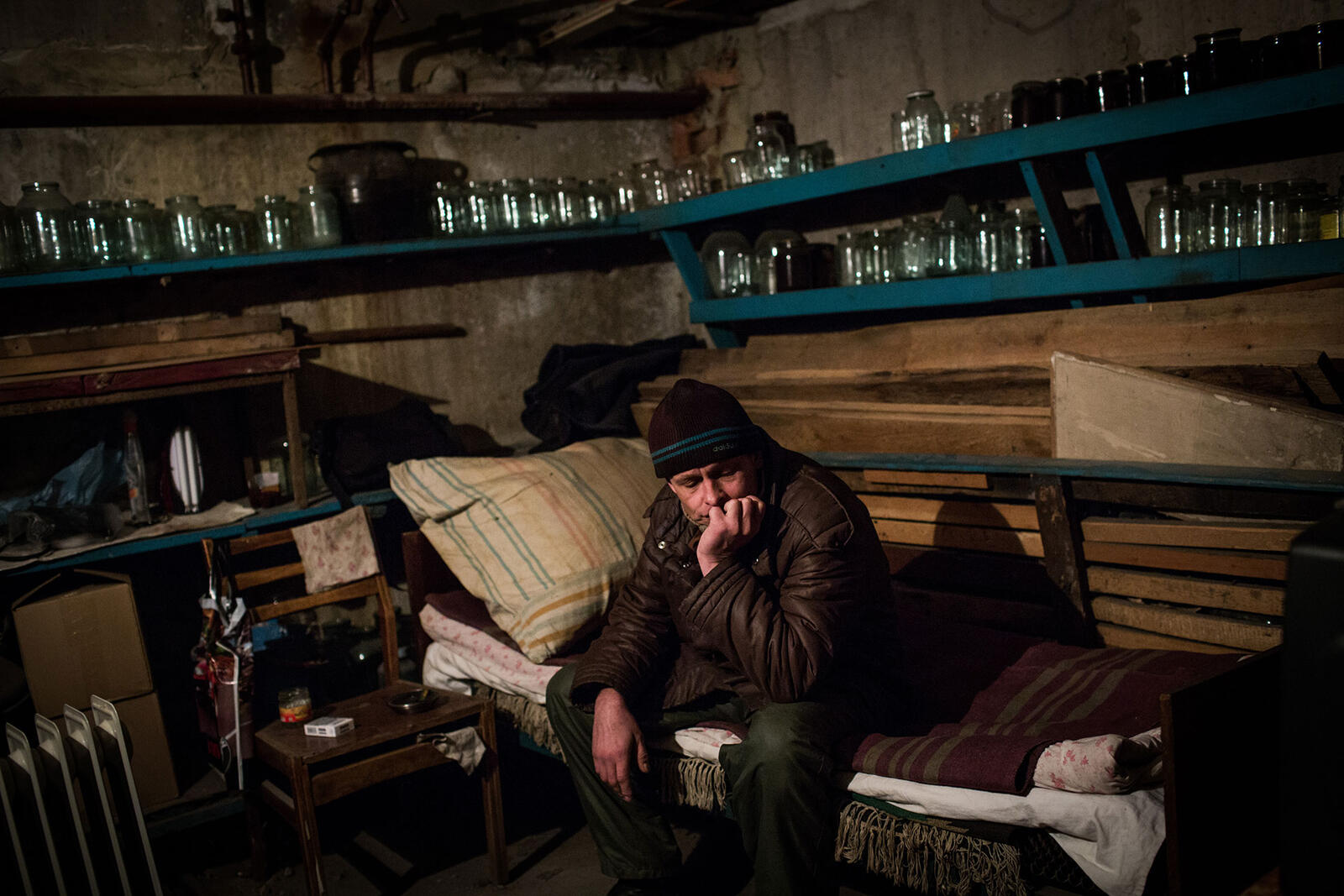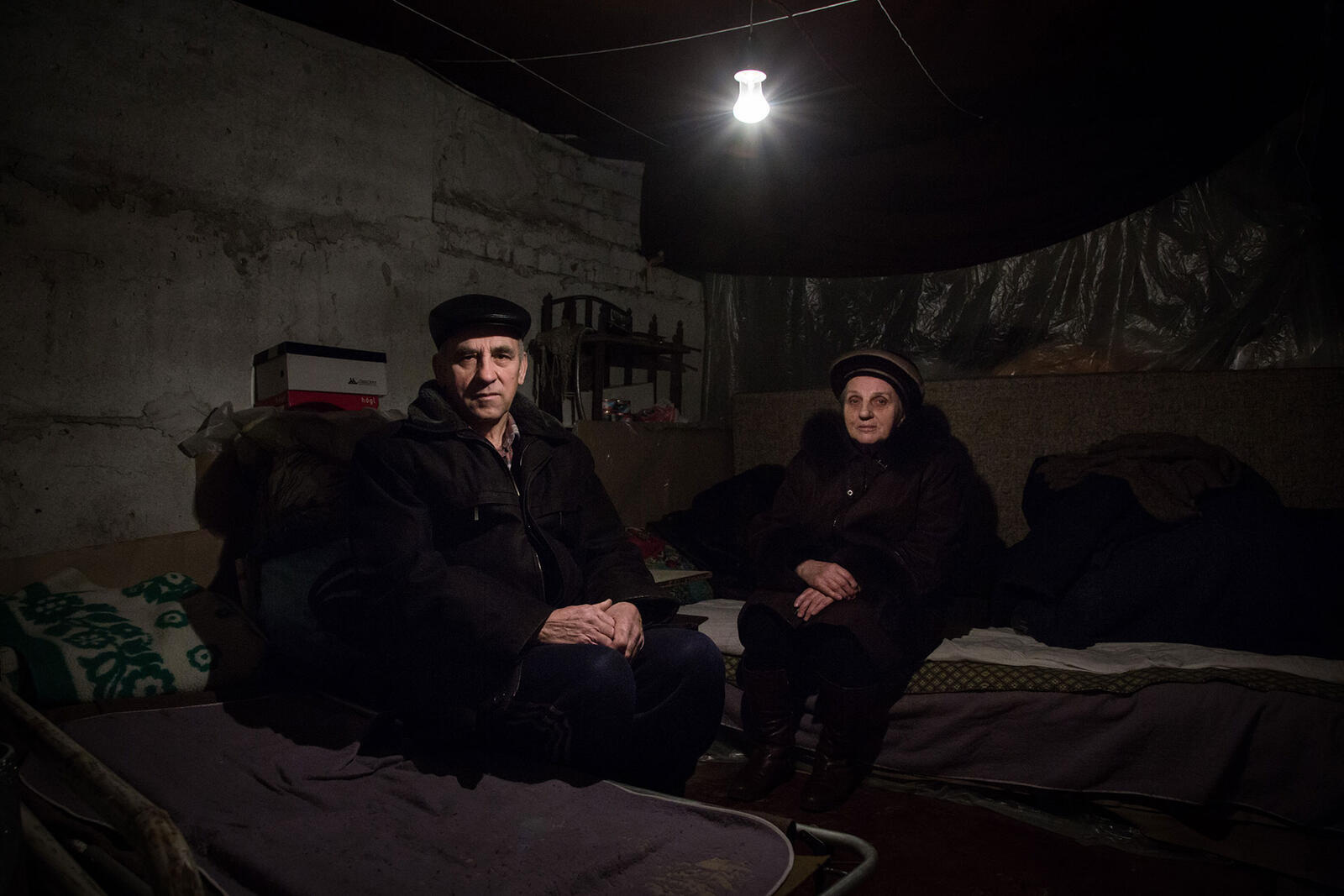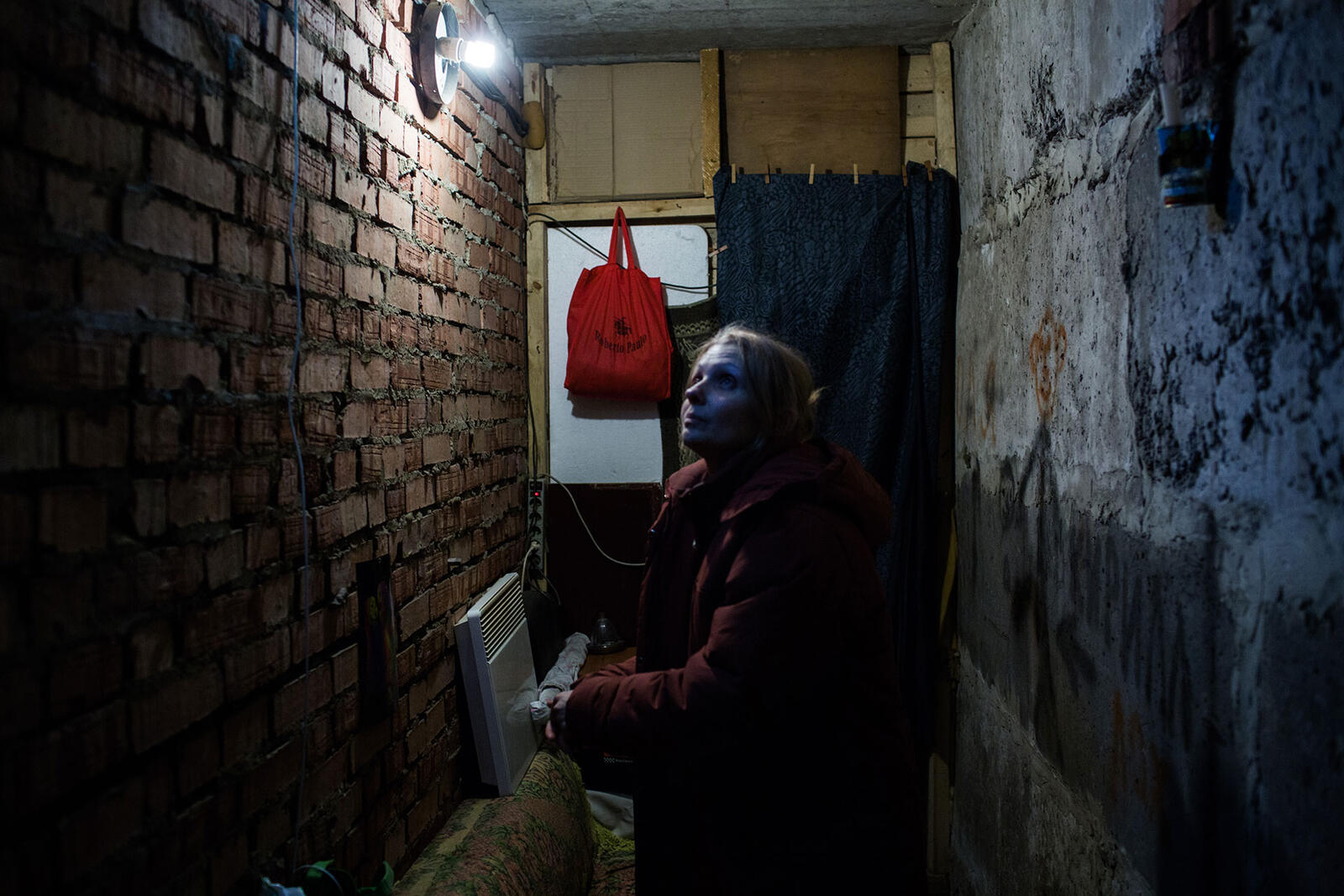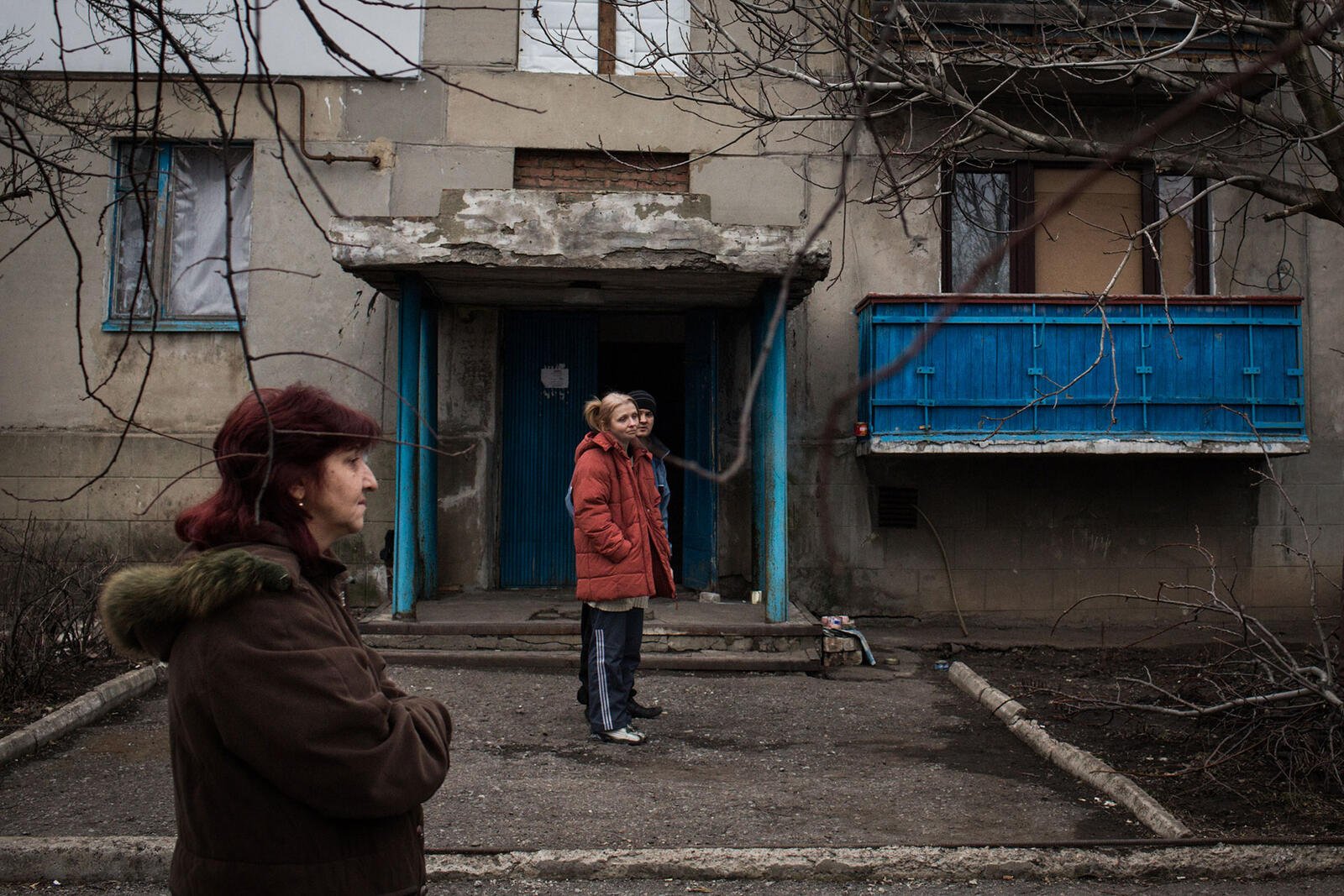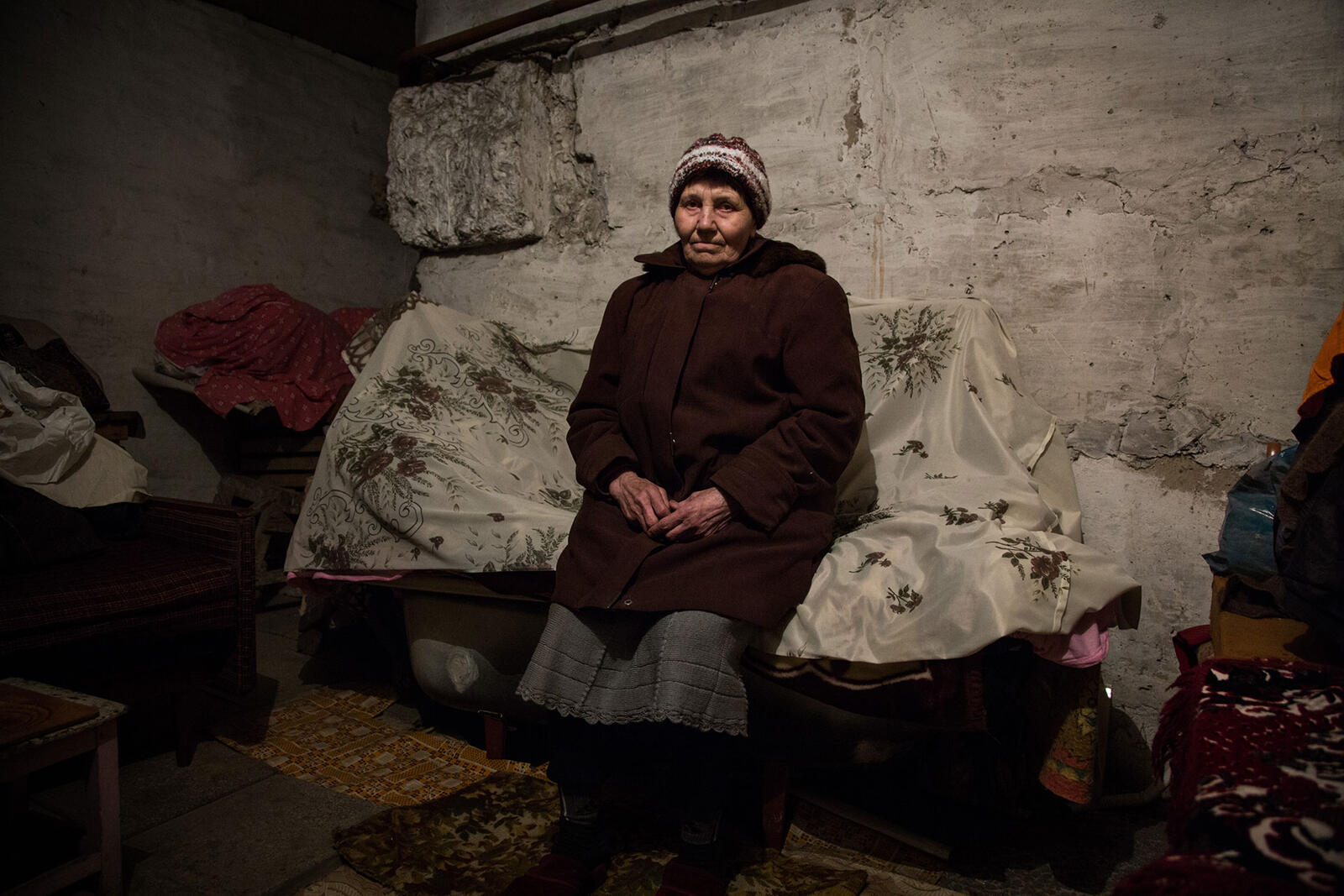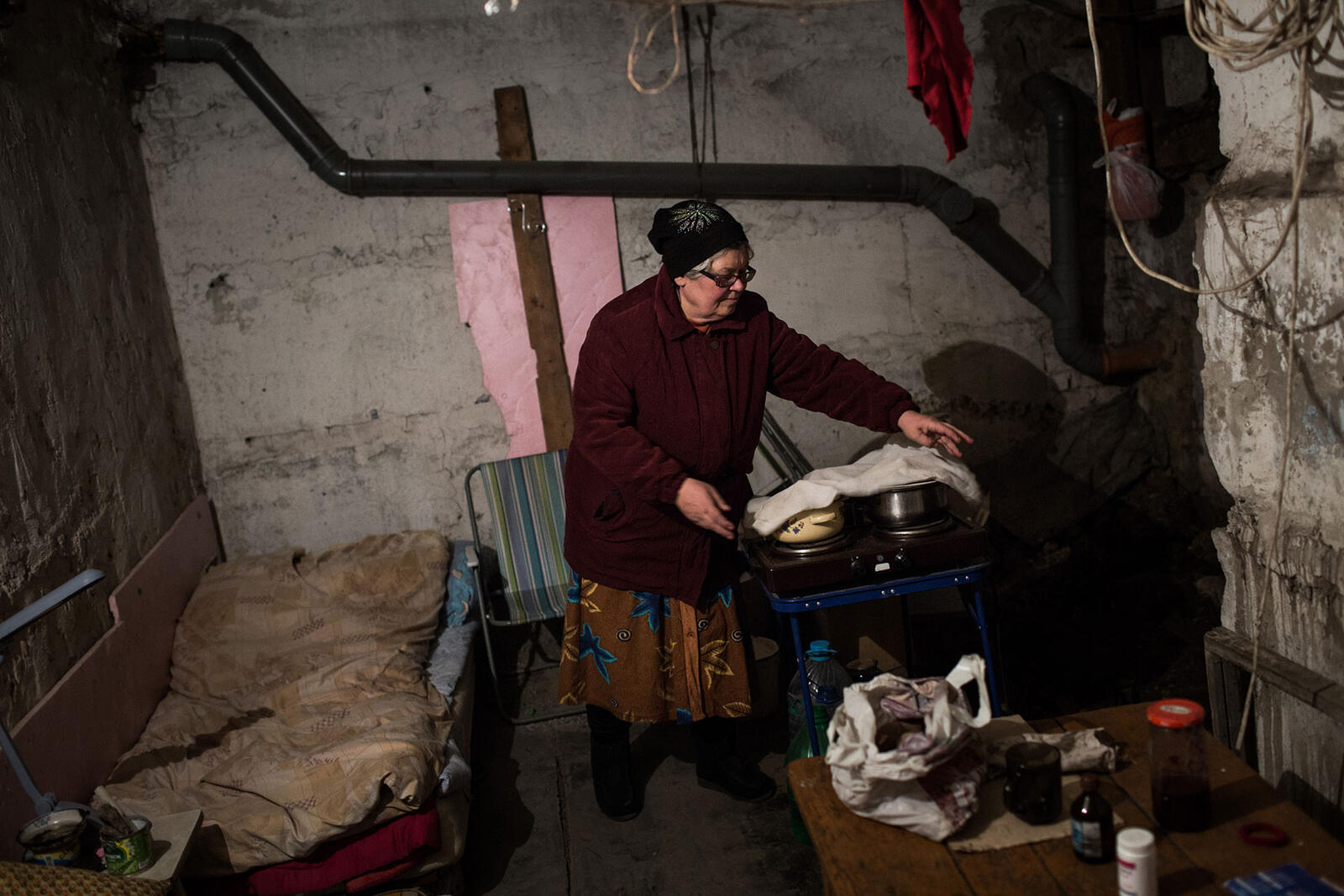The underground siege

The underground siege
They are the cellar people. In the conflict in eastern Ukraine, which has dragged on for almost a year, they have fled to the basements below their apartment buildings or to cellars dug to hold their tools and pickled vegetables. There are at least 1,000 of them in and around Donetsk, huddling below ground to avoid the shells which still fall regularly.
We followed Nikolai into the bowels of 82A Kozareva Street, down the stairs, right, then left, through a grey labyrinth of brick and cement corridors lit by a naked light bulb. Nikolai unlocked his door and walked into a dim, square room, a room of pain and loss.
In July 2014 the shelling became intense. Nikolai and his mother fled their wrecked apartment upstairs – its windows had all been blown out – to the cellar. Their underground life under fire left his mother paralyzed, literally, by fear. She lost the use of her legs. In October he moved her back up to her bed in the flat. For two months she suffered. On 6 December she died.
"It happened because of the stress," Nikolai says. "She had cardiac disease and probably she had a stroke. I called a doctor; she came and told us to be prepared for her death."
Nikolai's story is the saddest of those of the 18 people living in their underground village here, but others – like the husband and wife Alexei and Anna, and Oksana – also spoke of living with the daily fear.
"When they shell, the building shakes," Anna says. "And we shake. I pray to God."
When asked how she coped, Oksana broke down in tears. "I am really scared. I'm afraid of going out, of going anywhere."
That, sadly, is an increasingly common reaction. But others, like Liuba and Katia, exhibit a quiet stoicism that I've come to know while living in and visiting the region over 30 years.
Liuba smiles as she shows me the room with four narrow beds where she and six other people live: three couples and Liuba's granddaughter. Liuba has had two heart attacks and a stroke.
"The ambulance has come four times for me, but I always come back," she says.
Katia sits on an old bathtub covered with a board and a thin mattress. It's her bed. She's 76 and worked for 50 years in an asphalt factory, shovelling and spreading asphalt.
"It's not comfortable sleeping, but it's better than sleeping in the street," she explains.
She is, she agrees, tough.
These people are luckier than many underground people. They now have electricity and heat. But it took them a month of work living in the dark – cleaning, stringing electrical lines, cleaning the toilet pipes – to make the warren of rooms liveable. And, they all say, there's a friendly atmosphere. People help each other, sharing food.
When the shelling lets up they climb out to see the light and to clean up their damaged apartments, sweeping the rubble, putting up plastic sheeting on the broken windows. And in the autumn, after harvesting vegetables from their little plots, they set about pickling them for the winter. It was an oft-delayed process; they had to run downstairs frequently when the firing began again.
Katia proudly shows me her shelves of vegetables and then insists I take a jar of pickles. I protest; she needs it more than I. "No, no," she says. "And take this jar of tomatoes as well."
We prepare to leave. As we climb out of the cellar, Katia catches up and hands me a large jar of her raspberries.
"You need something sweet as well," she says.
Not just grace, I think, but also generosity under great pressure.

